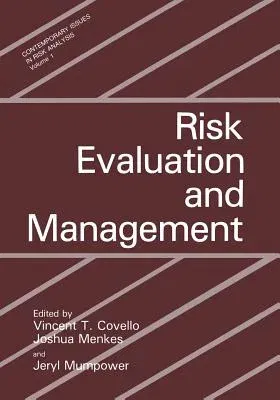Risk Evaluation and Management (Softcover Reprint of the Original 1st 1986)Paperback - Softcover Reprint of the Original 1st 1986, 30 September 2011

Qty
1
Turbo
Ships in 2 - 3 days
In Stock
Free Delivery
Cash on Delivery
15 Days
Free Returns
Secure Checkout
Part of Series
Contemporary Issues in Risk Analysis
Print Length
556 pages
Language
English
Publisher
Springer
Date Published
30 Sep 2011
ISBN-10
146129245X
ISBN-13
9781461292456
Description
Product Details
Book Edition:
Softcover Reprint of the Original 1st 1986
Book Format:
Paperback
Country of Origin:
NL
Date Published:
30 September 2011
Dimensions:
25.4 x
17.78 x
2.9 cm
ISBN-10:
146129245X
ISBN-13:
9781461292456
Language:
English
Location:
New York, NY
Pages:
556
Publisher:
Weight:
961.62 gm

